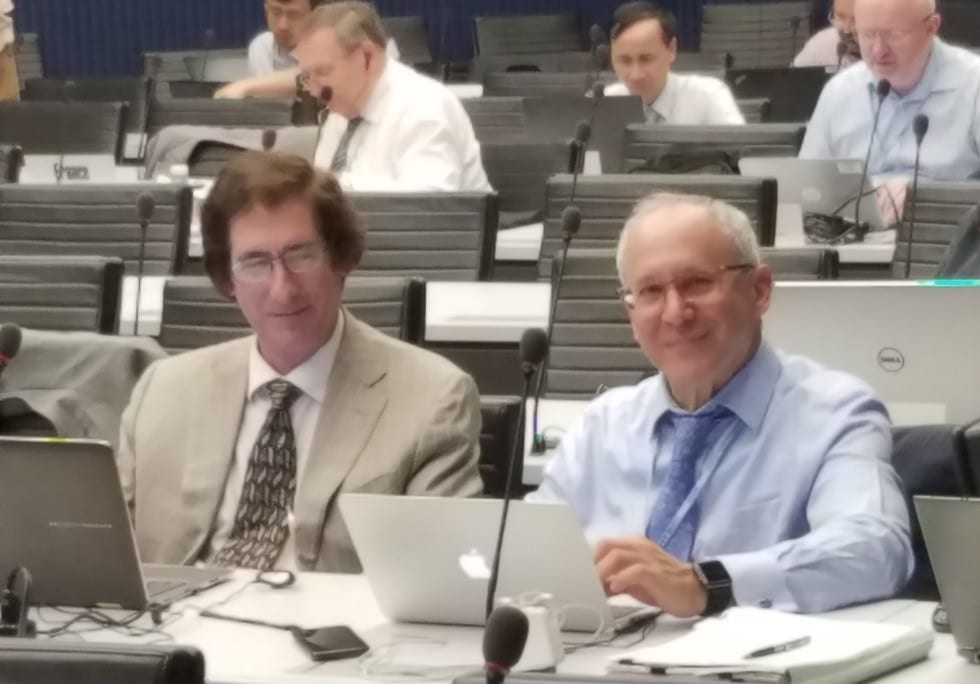
Advanced Television Broadcasting Alliance board member Louis Libin, VP of Spectrum Strategy, Sinclair Broadcast Group, attended the International Telecommunication Union meetings last week in Geneva, Switzerland, working with the U.S. Delegation on gaining worldwide approval of the ATSC 3.0 – Next Gen broadcast transmission standard.
“We’re cautiously optimistic that approval of ATSC 3.0 as an international standard is on an expedited track with a vote from all ITU member countries scheduled by year-end,” said Libin, Chairman of the special Rapporteur Group on ATSC 3.0. “Once approved, the expectations are that other countries will begin moving forward on adopting ATSC 3.0 as they convert from analog to digital transmissions.”
There are four international standards for digital transmissions. The U.S. proposal to modify a Recommendation involving the European standard would result in international recognition of the American version – ATSC 3.0. The U.S. offering was slightly modified at the Geneva meetings to include a new generation of the Chinese standard and space was made for a new version of the Japanese one as well.
“Fortunately, neither of those modifications will delay a vote by ITU member nations,” according to ONE Media Executive Vice President for Strategic and Legal Affairs, Jerald Fritz. Fritz and Libin were part of the U.S. delegation led by the FCC’s Larry Olson.
The ITU operates through so-called Study Groups, which develop the technical basis for decisions taken at World Radiocommunication Conferences and develop global standards (Recommendations). They also develop Reports and Handbooks on radiocommunication matters. More than 5,000 specialists from countries all over the globe, the telecommunications industry as a whole and worldwide academic organizations participate in the work of the ITU Study Groups.
Topics include efficient management and use of the spectrum/orbital resources, radio system characteristics and performance, spectrum monitoring and emergency radiocommunications for public protection and disaster relief.
For broadcasting services worldwide, Study Group 6 focuses specifically on vision, sound, multimedia and data services principally intended for delivery to the general public. Study Group 6 is responsible for moving the approval of ATSC 3.0 on for International approval.